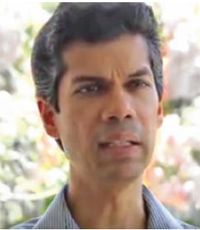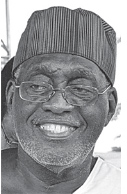 |
 |
 |
|
September 2016 |
Scholarly networking within the British Caribbean from the 1850s was dominated by links with British universities. These academic linkages were as a one way street - directed and controlled from the imperial centre - England. In the nineteenth century there was little scholarly reciprocity with the Caribbean colonies since these were perceived as underdeveloped and evolving from a background of slavery and indentureship. Although the British West Indies had its first university established in Jamaica in the 1960s, the university received its accreditation as a college of the University of London. Its academic programme was London-directed and known as The University College of the West Indies. Later the university became independent with various faculties. Scholarly networking within the British Empire also linked scholars of the Indian diaspora in the Caribbean with universities in India. This was achieved through the Government of India in its awarding of scholarships for study at Bombay University, Agra University, Delhi University and also at Calcutta and Lucknow Universities. Graduates in medicine, the humanities and engineering returned to serve in various Caribbean territories. In the latter part of the twentieth century an increasing number of Indians from the Caribbean pursued courses in Indian culture, music, languages and religious philosophy at recognised universities in India. This exposure to programmes at universities in India contributed to the socialization of the Indian diasporic community in the Caribbean. It has enhanced the revival of Indian culture and the development of Hinduism in the large Hindu communities especially in Trinidad and Guyana. The British scholarly network with the Caribbean has for several decades, included the provision of technical education for West Indians particularly through external examinations of The City and Guilds London Institute. Its standards have directed the curriculum of several technical institutes and apprentice programmes such as engineering, computer science, or hospitality and catering for the tourismbased economies on certain Caribbean islands. Before its merger with City and Guilds, the Pitman Examination Institute of Britain served as a major accrediting body for Secretarial and Business studies for several West Indian islands. After Trinidad and Tobago attained independence in 1962, The UWI continued to maintain its academic umbilical cord with Britain. For many persons, The UWI still served as a conservative colonial institution that neither challenged the government nor sought solutions to the Caribbean’s social problems. This ivory tower image of The UWI would soon be abruptly transformed in 1969. That year witnessed riots among undergraduate students, who faced racism, at Sir George Williams University (now Concordia University) in Montreal, Canada. It was the beginning of the Black Power Movement in Canada and later influenced the Black Power Movement in Trinidad and Tobago. And, on 26 February 1969, UWI students at St. Augustine prevented the Governor-General of Canada, Roland Michener, from entering the campus. The embarrassed UWI administration considered expelling students who were involved and these included Geddes Granger (Makandal Daaga) and Dave Darbeau (Khafra Kambon). However, the university’s administration soon abadoned the idea probably fearing more protests. In the 21st century, there is a remarkable strengthening of linkages between certain tertiary institutions in the Caribbean and universities in Britain, particularly in Law and also Business Administration. For example, external degrees from the Universities of Leicester, Warwick and Dundee are awarded through partnership with Caribbean tertiary institutions. The most important result of the scholarly networks was the gradual creation of a West Indian identity. In the future, The UWI must continue to forge its unique Caribbean identity but also maintain its colonial tradition of high academic standards in publishing research and teaching. More than sixty year after being established, UWI’s growth and progress include linkages with British universities including supervision of graduate theses, collaboration on research projects and conferences. The scholarly networks of the colonial era contributed to the emergence of West Indian leaders who demonstrated world class leadership and intellectual skills as their counterparts in Britain and other developed countries. In the future, there will be the continued ‘brain drain’ as UWI graduates depart to developed countries. In retrospect, this loss in human capital should be interpreted as a positive step as Caribbean intellectuals and academics continue to make their contribution to the global networking of scholarship making the world richer, not from the crisis of the ‘brain drain syndrome’ but from the wealth of a rich and diverse ‘brain circulation’ that seeks to promote peace and find solutions for the myriad of social problems.
|


 The university in the Caribbean is perhaps the most significant instrument which incorporated the British West Indies into the scholarly networking of the British Empire after 1850. The term ‘scholarly network’ is usually associated with intellectual or academic activities. Those persons included agriculturists, university lecturers/professors, engineers, doctors and geologists. These professionals were from Britain and her West Indian colonies, and sought to regularly convene conferences to share ideas and offer advice. Some of these specialists published books or journal articles whilst others delivered scholarly lectures.
The university in the Caribbean is perhaps the most significant instrument which incorporated the British West Indies into the scholarly networking of the British Empire after 1850. The term ‘scholarly network’ is usually associated with intellectual or academic activities. Those persons included agriculturists, university lecturers/professors, engineers, doctors and geologists. These professionals were from Britain and her West Indian colonies, and sought to regularly convene conferences to share ideas and offer advice. Some of these specialists published books or journal articles whilst others delivered scholarly lectures. EDITOR’S NOTE
EDITOR’S NOTE